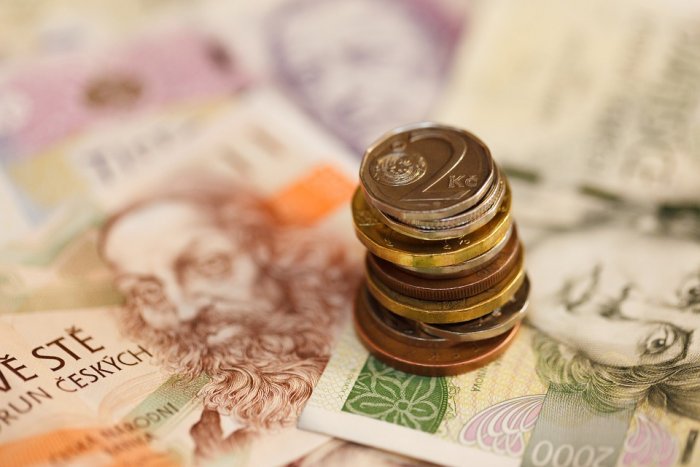Hungary’s mobile providers face flat new world

From the Budapest Business Journal print edition: A new era of mobile phone flat rates began in the past few weeks, with all three Hungarian providers gearing up for battle. Comparability has increased, although differences are still there if you look for them. Customers should benefit, but European counterparts are still far better off in terms of rates and data packages.
The “unlimited” concept is the magic formula of the fall for mobile providers in Hungary. Almost exactly one year after Vodafone came out with the first such package in October 2012, Telenor and Telekom have joined the game too. The shared ideology is based on three principles: a two-year contract represents the best deal; no handset available with basic packages; and 500 MB data to start with.
The offers encourage users to stick or move to what phones were originally meant for: talking. In return, you have to be satisfied with relatively low amounts of data credit. The reason for the policy lies in the fact that voice services place a lot less burden on networks than mobile Internet. Network intensive Internet data transmissions require heavy investment. Frequency license fees top the bill. Such costs trim profits for mobile data services, so generosity is not part of the deal: the basic flat rate packages contain 500 MB of data only.
“We detected a justified need on the part of customers that they wanted unlimited calling and text messaging as many never used up their data credit anyway,” György Márton, spokesperson for Vodafone explained to the Budapest Business Journal. Data-thirsty users still have the option to pick a larger package, or they can go separately for additional GBs at an extra charge.
Define “flat”
Customers have waited long enough for the era of limitless talking and texting. “The rate structure is simple and transparent, and prices are reasonable since they have decreased by almost 50% compared to our previous offer with similar parameters,” Magyar Telekom’s Directorate for Communications stated. But despite claims of better transparency, it does take an effort to cut through the clutter, for there are degrees of ‘flatness’.
You could buy unlimited monthly freedom inside your own provider network for between HUF 4,990 (Vodafone) and HUF 6,490 (Telekom). The trick is that subscribers of Telenor and Vodafone, the two providers with smaller market shares statistically, have to place more calls outside the network, which inevitably generates more costs beyond the package.
Level 2 on the ‘flat scale’ implies “infinite” monthly phoning and SMS sending to all networks, complemented by a standard data volume of 500 MB. Rates were set in a copycat fashion, at HUF 9,990 (with the exception that T-Mobile offers this fee only for loyalty program members). But there is more to keep an eye out for. It is only Vodafone where calling voice mail, numbers normally dialed from fixed lines at a discounted rate, and sending MMS are all included in the price.
The flat nirvana can be reached by digging a bit deeper in your wallet and then your reward is more data. Monthly fees range from HUF 13,990 to HUF 19,990 (see table), and providers justify their rates with different arguments. T-mobile prides itself on having the largest 4G-network coverage in the country (40%), which is bound to ensure maximum speed data transmission. Vodafone, in turn, stresses its unique handset insurance and the provision of cloud-based storage.
Much ado about nothing?
It remains to be seen what impact the flat rate race will have on the market. In certain cases the time limit to choose an unlimited package is guaranteed only till the end of the year. That makes projections difficult. But pundits think that because of the similarity of the new rates, huge tremors will not come about and market shares should not change significantly.
The grass is always cheaper...
While Hungarian mobile customers are being bombarded by their providers’ unlimited packages, it is worth stopping for a moment and assessing to what extent they should feel spoiled by European standards. Not that much, to put it mildly.
Go to the Czech Republic and you will find that flat rate offers are well under the HUF 9,000 mark (CZK 749) with a data pack of up to 1.5 GB included. In the heat of a mad price race in Poland, the best package is down to PLN 57, the equivalent of around HUF 4,000.
“When setting rates, several factors need to be taken into account such as the size of the market, consumer habits, the tax burden of providers, the amount of VAT and frequency license fees”, György Márton of Vodafone Hungary commented.
Fair enough, but it also may be of relevance how rates correlate to purchase-power parity. This is striking especially drawing a parallel with wealthy Austria: A1 charges merely EUR 22.90 (approximately HUF 6,700) for its unlimited package.
Creeping backwards
Another important aspect is the amount of data included in the flat offers. Rewheel, a Finnish consultancy pointed out in a survey that Hungary is the most expensive country in the EU with respect to smartphone use when looking at how much one Gigabyte costs on average when included in unlimited packages. It is also a fact that the maximum amount of data included in a flat price is 3 GB (without using further options for extra charge). There is no other EU member state where so little is offered under such conditions.
It is true, though, that demand here seems to be lacking for better terms. The average monthly data traffic per active user is falling, amounting to only 0.87 Gigabyte as of September 2013, compared to 1.07 GB in October 2013. And that includes all mobile devices connected to the Internet, not only phones.
In Europe, with mobile Internet fueling a digital economy, trends are quite the opposite. In Scandinavia the share of value added services available through mobile Internet is a lot higher than in Hungary and customers there pay not for access, but for accessible contents. So the revenue per subscriber is several times higher than in Hungary. The Hungarian market is, in turn, phone-oriented, that is subscribers decide on the basis of choice of handsets, and average spending is smaller.
It seems Hungary is going backwards.
Room for a fourth?
There was a lot of hype about the government entering the mobile market with its own company, until the plan stalled. Now experts speculate to what extent the flat rate invasion by the operating providers could affect a possible market entry of a fourth state-owned player.
It is expected that the new customers of such an operator would be employees of municipalities and government-run companies, but if prices are set low enough, they could poach customers from the three incumbent competitors as well.
As to flat rate schemes, a general reason for applying them could be to serve as a ‘pre-emptive strike’ to deter new players from jumping into the playing field. But since profitability would not be among the motives, in the Hungarian case it should be totally irrelevant how competitive the playing field is at the time of market entry of a government mobile provider. And so the unlimited craze would have no impact on the new kid on the block.
SUPPORT THE BUDAPEST BUSINESS JOURNAL
Producing journalism that is worthy of the name is a costly business. For 27 years, the publishers, editors and reporters of the Budapest Business Journal have striven to bring you business news that works, information that you can trust, that is factual, accurate and presented without fear or favor.
Newspaper organizations across the globe have struggled to find a business model that allows them to continue to excel, without compromising their ability to perform. Most recently, some have experimented with the idea of involving their most important stakeholders, their readers.
We would like to offer that same opportunity to our readers. We would like to invite you to help us deliver the quality business journalism you require. Hit our Support the BBJ button and you can choose the how much and how often you send us your contributions.





.jpg)


